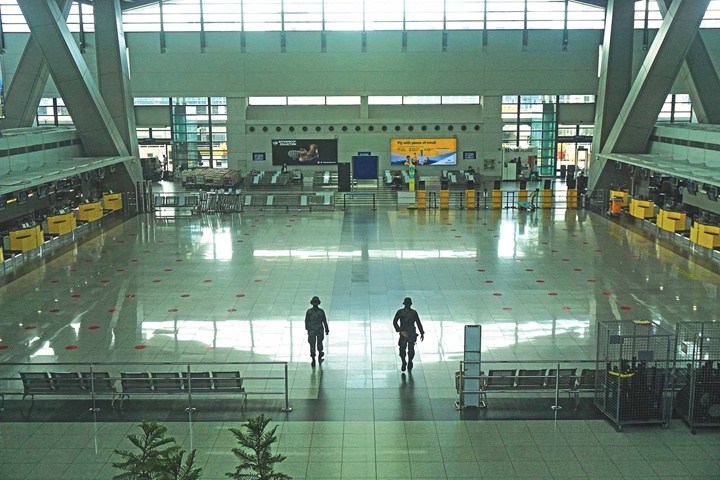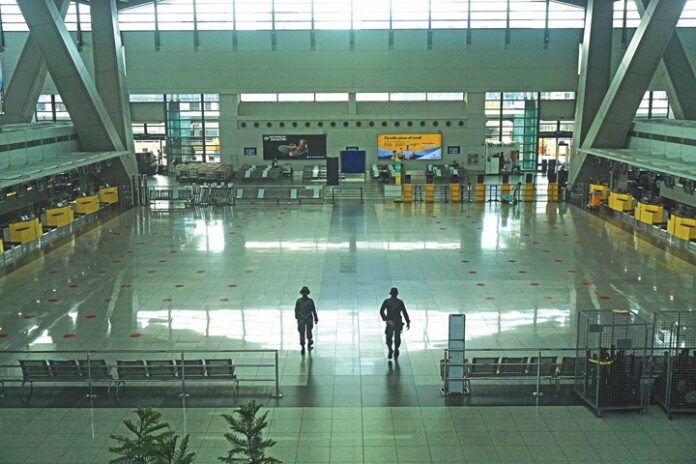
Image credits: Nonie Reyes
VACCINATED or not, newly arrived visitors from abroad will still have to isolate themselves for seven days at government-accredited quarantine hotels.
This was the clarification made by Foreign Affairs Undersecretary for Civilian Security and Consular Concerns in a Viber message to the BusinessMirror: “Yes, they still have to undergo the quarantine and [RT-PCR] testing upon arrival. There are no unique DOH [Department of Health] protocols for vaccinated individuals.”
Said concern was raised in several tourism forums by Filipinos residing abroad, and who want to visit their families here. The United States and the United Kingdom, where huge numbers of overseas Filipinos reside, had been rolling out Covid-19 vaccines for their citizens. However, prevailing medical literature indicate, while the vaccine can protect the recipient from getting seriously ill from Covid, he can still get the virus, and thus infect others.
Manila lifted the ban on inbound travelers from countries with the new Covid-19 variant on February 1, but now requires arriving passengers to quarantine for seven days and take an RT-PCR test on the sixth day from their date of arrival. (See, “Travel ban lifted; RT-PCR testing will be done at quarantine hotels,” in the BusinessMirror, Jan. 29, 2021.)
LGUs still get to decide entry requirements
Meanwhile, the Inter-Agency Task Force for the Management of Emerging Infectious Diseases (IATF-MEID) left it up to the local government units (LGUs) to decide on their requirements to accept inbound travelers, which belies reports that it had approved uniform protocols for travel within the country.
In its Resolution No. 101 dated Feb. 26, 2021, the IATF stated: “Testing shall not be mandatory for travelers except if the LGU of destination…will require testing as a requirement prior to travel, and such shall be limited to RT-PCR.”
The Department of Interior and Local Government earlier proposed that LGUs do away with Covid testing to boost domestic tourism. However, a number of destinations already open for leisure purposes even from general quarantine areas, such as Bohol, El Nido and Coron, Cebu City and Lapu-Lapu City, Boracay Island, Baguio, Ilocos Sur, Siargao and the like, still require RT-PCR or antigen testing.
However, the IATF did do away with the travel authority issued by the Joint Task Force Covid Shield and health certificates, which were among the documents some LGUs had required from travelers.
Apps to end all apps
The task force, however, ordered the use of a new app—the Safe, Swift, and Smart Passage (S-PaSS) Travel Management System—developed by the Department of Science and Technology (DOST) “as the one-stop-shop application/communication for travelers,” and for LGUs to assign a focal person for it. The DOST web site failed to provide any information on the app, which can be downloaded on from Google Play and other app developer sites. The app, however, would not open when this reporter and other government sources tried it.
Aside from S-PaSS, the IATF maintained the StaySafe.ph System as “the primary contact-tracing system,” ordering the integration of Traze app and other existing contact-tracing apps with StaySafe. The Department of Transportation had mandated the use of the Traze app, developed by the Philippine Ports Authority with Cosmotech Philippines Inc., in all airports and seaports last November. Privacy concerns had been raised by IT experts on StaySafe, which was developed with Multisys Technologies Corp.
LGUs which had reopened its destinations to leisure tourism had developed their own apps for health-declaration registration and contact tracing. Among them are Baguio City’s Visita app, funded by the Department of Tourism.
Read full article on BusinessMirror



